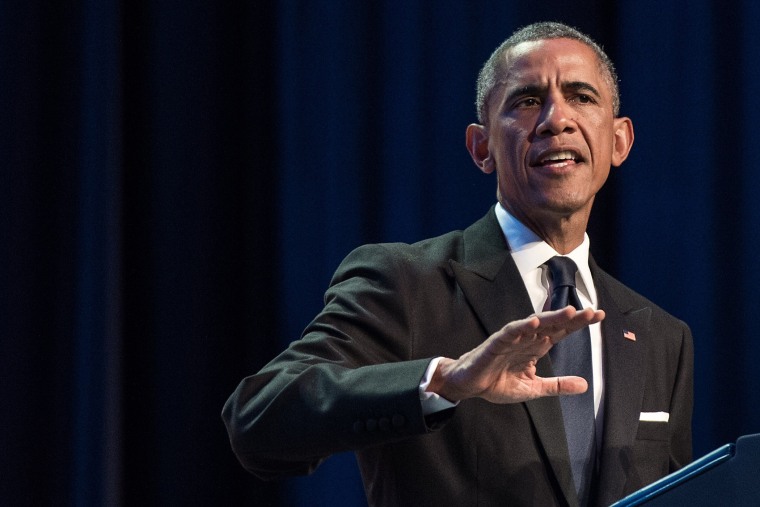With 35 days until the midterm elections and the terror threat of the Islamic State of Iraq and Syria in the spotlight, lawmakers are diving headfirst into the political blame game.
On one side are Republicans who see political gold in President Obama’s recent remarks that the United States underestimated the threat posed by ISIS. Democrats, meanwhile, are accusing the GOP of using scare tactics to help give their candidates a leg up on election day.
"Had Obama simply said … everyone screwed up, he wouldn’t have gotten the blowback he’s now getting."'
Then there’s the commander-in-chief, who has distanced himself from the failure to anticipate ISIS's rise. During an interview with CBS’s “60 Minutes,” Obama said, “I think our head of the intelligence community, Jim Clapper, has acknowledged that I think they underestimated what had been taking place in Syria.” Conspicuously absent, Republicans noted, was any personal mea culpa from the president.
White House spokesman Josh Earnest said later that Obama did not mean to blame the intelligence community and that the commander-in-chief believes he is “ultimately responsible.” Nonetheless, Obama’s remarks have given ammunition to his critics that he won’t accept some accountability – a purported character trait he’s been hammered for in the past.
Obama’s “60 Minutes” interview on Sunday was supposed to be a feather in his cap after a strong week in which the U.S. and its allies began airstrikes in Syria against ISIS and the president was well-received at the United Nations, in which he convinced the international community to rally around his efforts to battle Islamic extremism. A new CNN/ORC poll even showed that 45% of Americans approve how he’s handling ISIS – up eight points from before Sept. 10, when Obama briefed the nation on his plan to defeat ISIS.
PHOTO ESSAY: The forgotten faces of war
But now, he’s seemingly found himself on defense. As NBC’s First Read notes, “had Obama simply said ... everyone screwed up, he wouldn’t have gotten the blowback he’s now getting."
Republicans are now pouncing on the misstep, trying to make the argument that Obama is soft on terror. With the midterms approaching, it's a stark reminder of how things have changed over the last 12 years: During the 2002 midterms, with America at war in Afghanistan and still reeling from the 9/11 attacks, Democrats were hesitant to break with then-President George W. Bush. For a time, both sides of the aisle were united behind the president in a way that seems impossible now.
Although a bipartisan majority in both the House and Senate voted earlier this month to approve President Obama's plan to train and arm the moderate Syrian opposition to fight ISIS, lawmakers have so far avoided a broader conversation about the legality of the current U.S. military campaign in Iraq and Syria. But that hasn't stopped politicians from capitalizing on their differences to malign each other on national security policy as the midterm elections approach.
RELATED: As ISIS roars, the GOP resurrects ‘the politics of fear’
On Tuesday, the National Republican Senatorial Committee came out with a new ad painting Democratic Colorado Sen. Mark Udall – who’s in a tight race against Republican Cory Gardner – as a lawmaker who doesn’t care about national security or the ISIS threat.
Republican Senate candidates David Perdue in Georgia, Allen Weh in New Mexico and Scott Brown in New Hampshire have lobbed similar criticism at their Democratic opponents. Democratic Sen. Jeanne Shaheen, who faces off against Brown on Nov. 4, accused him of “peddling the politics of fear.”
